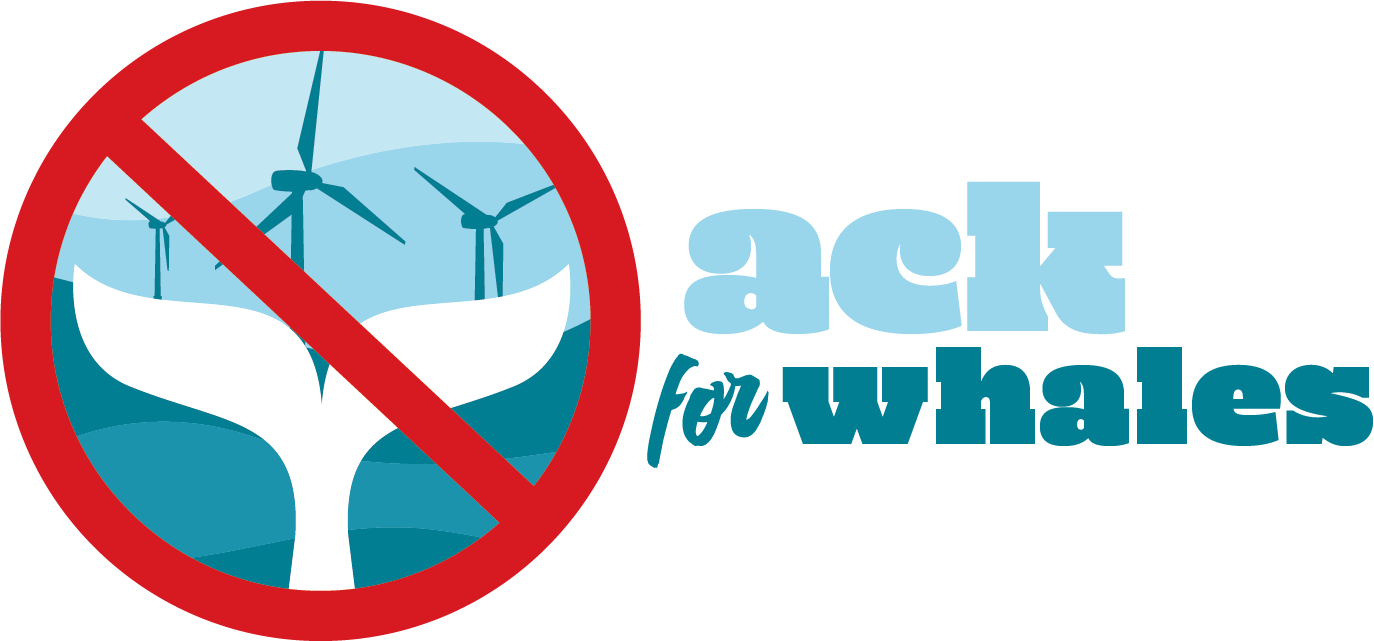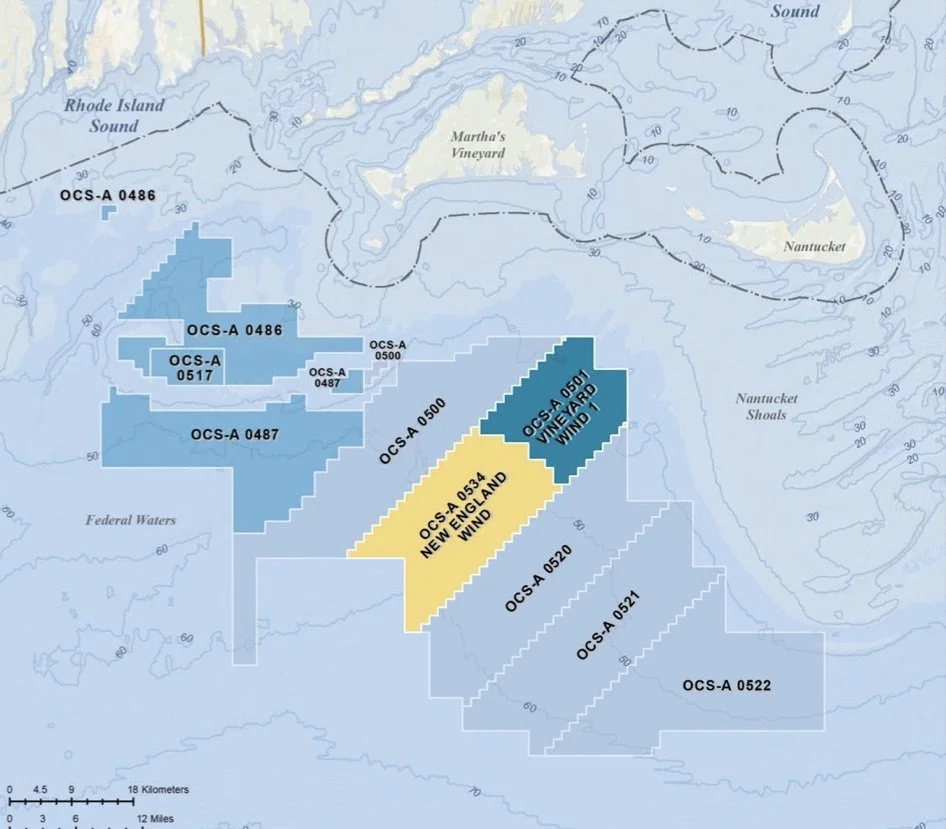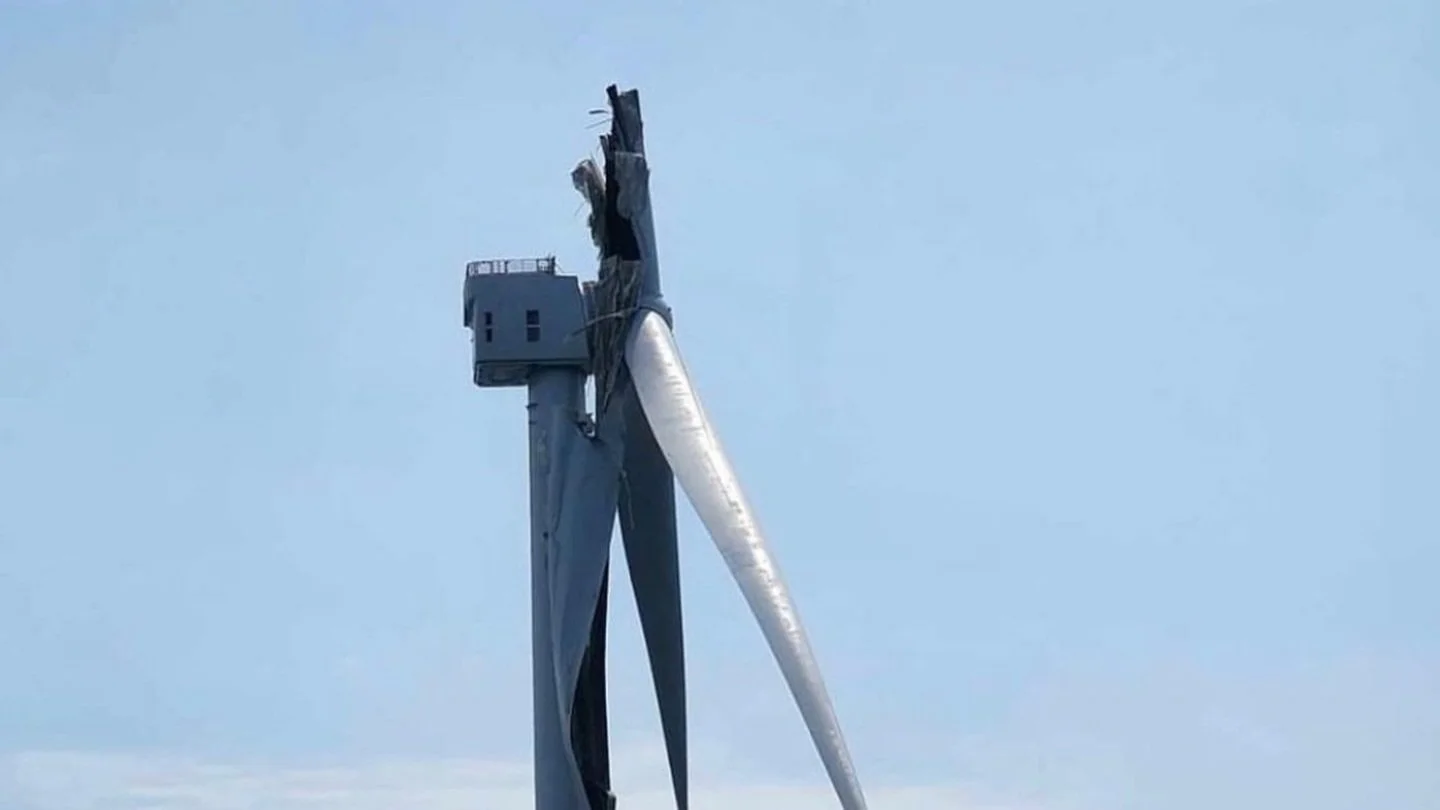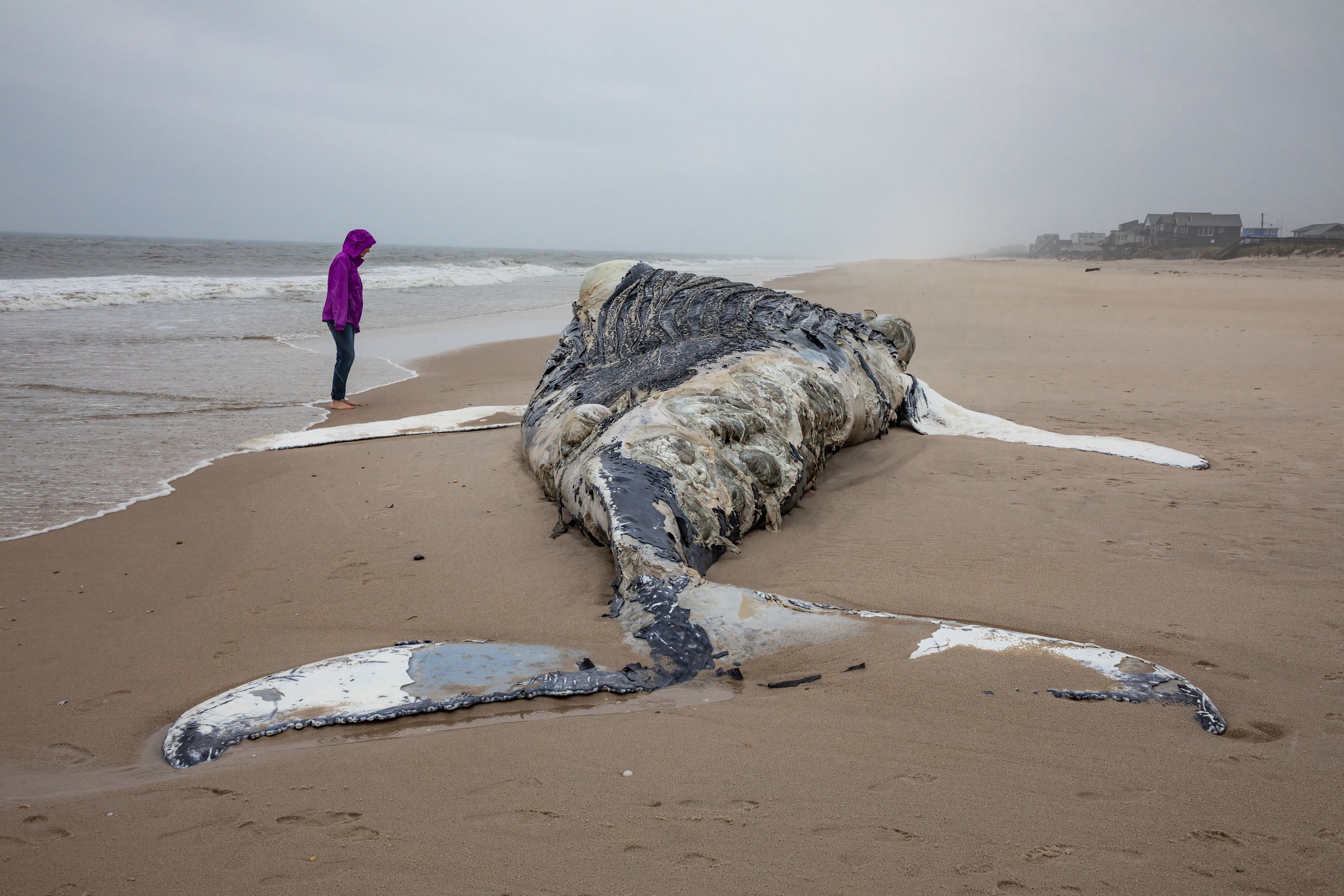
June 3, 2025
Today, Protect Our Coast New Jersey, Clean Ocean Action, and ACK for Whales—filed a federal lawsuit to stop the Empire Wind offshore wind project.
TRENTON, NJ, UNITED STATES, June 3, 2025 /EINPresswire.com/ -- Today, a coalition of environmental organizations and family- owned commercial fishing businesses from New Jersey to Massachusetts filed a federal lawsuit in the U.S. District Court of New Jersey (PROTECT OUR COAST NJ et al v. UNITED STATES OF AMERICA et al; Case Number: 3:25-cv-06890) seeking to halt the Empire Wind 1 offshore wind project.
Led by Protect Our Coast New Jersey, Clean Ocean Action, and ACK for Whales, the plaintiffs include seafood operations, civic leaders, and fishing families who allege that the project poses risks to marine ecosystems and coastal livelihoods. They are requesting that U.S. Interior Secretary Doug Burgum reinstate the April 16 stop work order, which was lifted on May 15.
“We will not stand by while our ocean is sacrificed for foreign interests and political vanity.” -Amy Disibio, ACK for Whales
“This project was pushed forward without the science, scrutiny, or stakeholder-input required by law,” said Robin Shaffer, President of Protect Our Coast NJ. “It places our ocean, our coastal economies, and our commercial fishing heritage in danger. Fishermen and environmentalists are united; this project must be stopped.”
The Empire Wind 1 project involves the installation of 54 turbines off the coast of New York and New Jersey in an area described by the plaintiffs as biologically significant for fisheries and marine mammal migrations. The project includes plans to place approximately 3 billion pounds of rock on the seafloor, which the plaintiffs claim could affect habitats for scallops, squid, fluke, and other marine species.
Lead counsel Bruce Afran stated that the case is based on legal deficiencies: “The federal government failed to meet its own legal standards for environmental review, species protection, and interagency coordination. These omissions are not procedural, they are unlawful.”
The plaintiffs raise concerns about environmental impact assessments, endangered species protections, essential fish habitat consultations, marine mammal authorizations, and potential effects on navigation, radar, and aviation safety. They also seek to nullify Equinor’s Empire Wind lease, arguing that it violates the Outer Continental Shelf Lands Act (OCSLA) due to Equinor’s majority ownership by the Kingdom of Norway.
“New York’s increased electric rates will help fund a foreign government,” said Afran. “OCSLA does not permit leases to entities controlled by foreign states.”
The lawsuit argues that because Equinor is majority-owned by the Norwegian government, the lease should be considered unlawful and vacated.
“For over 40 years, Clean Ocean Action has defended the ocean,” said Cindy Zipf, Executive Director of Clean Ocean Action. “In April, the Government Accountability Office report confirmed our claims— offshore wind development has been getting a pass with a fast-tracked, rubber-stamped approach. Clean Ocean Action fully supports this legal challenge to ensure the ocean is protected and laws are upheld.”
“The working men and women who bring sustainable seafood to American consumers’ plates risk extinction. We cannot stand by and let that happen,” said Bonnie Brady of the Long Island Commercial Fishing Association.
“This project is a precedent-setting assault on the ocean environment, our commercial and recreational fishing industries, tourism, and the very quality of life on the Jersey Shore,” said Mayor John Peterson, Jr. of Seaside Park, NJ. “There may be millions of dollars against us—but there are millions of us standing in defense of our coast.”
The coalition states it will continue to pursue the case in court and in public discourse. “We will not stand by while our ocean is sacrificed for foreign interests and political vanity, we will fight in court and in the court of public opinion until every piece of this reckless project is removed,” said Amy DiSibio, Board Member of Nantucket-based ACK for Whales.
May 28, 2025
ACK For Whales, Wampanoag Tribe / Aquinnah, Coalition of Charter Fishing Groups from Four States and Seven Environmental Champions Sue Federal Government Over Wind Projects
Plaintiffs say Government broke five Federal laws in granting approval for the projects
NANTUCKET, Mass. - The independent and non-partisan environmental grassroots group ACK For Whales, the Wampanoag Tribe of Gay Head / Aquinnah, Green Oceans, a coalition of charter fishing groups and seven individuals have filed suit in federal court asking the Court to find that the Departments of Interior and Commerce and their sub-agencies violated the law when they approved the Record of Decision (ROD) for the offshore wind New England 1 and 2 projects.
The plaintiffs argue that in approving the ROD for the two projects, the Departments of Interior and Commerce, National Marine Fisheries Service (NMFS) and Bureau of Ocean Management (BOEM) violated the Marine Mammal Protection, Endangered Species, Outer Continental Shelf Lands, National Historic Preservation and Administrative Procedures Acts.
The environmental groups and tribe are joined as plaintiffs by the Rhode Island Party and Charter Boat Association, Cape Cod Charter Boat Association, Connecticut Charter Boat Association, and Montauk Boatmen and Captain’s Association, as well as Capt. Buddy Vanderhoop, Nantucket lobsterman Danny Pronk, Nantucket pilot and fish-spotter Douglas Lindley, Nantucketers Steven and Sharyl Kohler, ACK for Whales President Vallorie Oliver and Board Members Amy DiSibio and Veronica Bonnet. “In offshore wind project after offshore wind project, from Revolution Wind, Vineyard Wind and New England Wind to the others, the government was so desperate to rush these projects that it cut corners and violated the law,” Oliver said. “The government didn’t care if it trampled on the Wampanoag sacred beliefs and rites, hurt the charter boat, fishing and lobster industries or wiped out the Right whales. The only thing that mattered was to get these environmentally destructive turbines built, costs to the rest of us be damned.”
New England Wind 1 is a 791-megawatt project slated to begin construction later this year and deliver power to Massachusetts by 2029. New England Wind 2, a 1,000-megawatt project, does not yet have a state lined up to receive its power. The projects are two of the 11 wind farms that received all of their federal permits before President Trump took office. “We joined this lawsuit because individual Tribal Members and our Tribe are being harmed by these giant wind farms making an industrial park out of our waters,” said tribal Chairwoman Cheryl Andrews-Maltais. “Unlike the other plaintiffs, the harms go back as far as time immemorial and as deep as to who we are as Aquinnah Wampanoag People; our culture, traditions and spirituality, connecting us to the lands, waters, sky and all living things. Since the government has ignored us individually, we hope that our collective voices will be heard.”
“This project was permitted illegally and unfairly,” Mr. Pronk said. “We, the fishermen and lobstermen, are losing our grounds to foreign-owned, wind-power plant developers who are decimating sustainable fisheries that employ tens of thousands of U.S. citizens and feed millions of Americans.”
“The analytic and legal deficiencies of New England Wind are a microcosm of what we have seen in other offshore wind projects – the agencies simply fail to account for critical data which has ramifications for marine mammals on numerous fronts,” said Thomas Stavola Jr. Esq., ACK for Whales’ counsel. The suit, filed in Washington, D.C. federal court on May 22, seeks declarative relief finding that the government violated these laws, and an injunction to stop these projects from moving forward.
In March, ACK for WHALES asked the United States Environmental Protection Agency to revoke the New England 1 and 2 permits because the approval process ignored air pollution caused by the projects.
About ACK for Whales
ACK for Whales is a group of Nantucket community members who are concerned about the negative impacts of offshore wind development off the south shores of our beloved Island. The Massachusetts / Rhode Island wind area is bigger than the state of Rhode Island and will ultimately be occupied by more than 2,400 turbines, each taller than the John Hancock building in Boston, connected by thousands of miles of high voltage cables. There are many unanswered questions, and the permitting of these massive utility projects has happened largely out of the public eye. We provide a community group of neighbors and friends, who all love the same place.
Media Contact:
Mark Herr
203-517-8957
Mark@MarkHerrCommunications.net
April 21, 2025
ACK for Whales Urges Revocation of Vineyard Wind Project
ACK for Whales Asks Energy Secretary Burgum to reopen case and cancel permits Government rushed to issue permits through faulty review and process
Vineyard Wind and Government never disclosed or studied blade failure issues
NANTUCKET, Mass.--(BUSINESS WIRE)--ACK for Whales, the non-profit grassroots Nantucket group leading the fight against Offshore wind turbines, said Monday it has asked U.S. Secretary of the Interior Douglas Burgum to reopen the permit approvals for the Vineyard Wind project to review significant gaps in the process, and to revoke the permits.
When Interior’s Bureau of Ocean Energy Management (BOEM) in January 2025 granted Vineyard Wind’s Revised Construction and Operations Plan (COP), it failed to consider or discuss the threat of turbine blade breaks or lightning strikes on turbines, two problems that have beset Vineyard Wind’s construction, ACK For Whales said in its letter.
Last July, a blade snapped on a Vineyard Wind turbine of Nantucket, strewing 70 tons of jagged and potentially toxic blade shards from Cape Cod to Montauk Point in New York. In 2025, the same turbine was struck by lightning and further damaged.
“BOEM consistently ignored data throughout the permitting process because it was rushing to carry out the partisan agenda of it political overlords,” said ACK for Whales President Vallorie Oliver. “Even after the blade failure last year and subsequent confirmation of the same untested Haliade X blades failing elsewhere, BOEM doubled down and rushed its approval, failing again to do its job properly.”
As the letter to Burgum notes,
More than 36% of wind turbines fail less than three times; however, most wind turbines suffered five to nine failures during observation. As such, turbine failure is a well established problem. The revised COP does not appear to examine the possibility that regular turbine failure events have the capacity to introduce significant environmental degradation (i.e., marine debris, which can invariably deleteriously affect both sea and land, inter alia). These new “significant effects” could warrant a supplemental environmental assessment or environmental impact statement. The revised COP and approval letter notes that certain conditions were added, but does not indicate that analysis beyond the original Environmental Impact Statement’s scope...
“It is apparent that grave analytical defficiencies exist in the revised COP and the underlying federal permit approvals for Vineyard Wind 1, among those include the failure to prepare a supplemental environmental impact statement to assess the impacts of blade failures,” said Thomas Stavola Jr. Esq., attorney for ACK for Whales.
BOEM also did not analyze the causes of the blade failure – as was required. – BOEM did not make clear whether the revised COP was as specific as federal rules demand, and did not solicit or consider adequate public comment, the letter says.
“We’ve asked the government for months to answer our questions,” Oliver said, “but they continually stall. Although they finally agreed to hold a public meeting, they delayed and then postponed that meeting indefinitely, despite receiving hundreds of questions from concerned citizens.”
“Not only was the public ignored in the approval process for the revised COP, but there was also no public notice whatsoever until the approval announcement was made in a press release,” Oliver said. “We hope Secretary Burgum will direct the agencies to take a hard look at this environmentally unsound and unsafe project.”
About ACK for Whales
ACK for Whales is a group of Nantucket community members who are concerned about the negative impacts of offshore wind development of the south shores of our beloved Island. The Massachusetts/Rhode Island wind area is bigger than the state of Rhode Island and will ultimately be occupied by 2,400 turbines, each taller than the John Hancock building in Boston, connected by thousands of miles of high voltage cables. There are many unanswered questions, and the permitting of these massive utility projects has happened largely out of the public eye. We provide a community group of neighbors and friends, who all love the same place.
ContactsMedia:
Mark Herr
203-517-8957
Mark@MarkHerrCommunications.net
March 25, 2025
ACK for Whales has Requested the Reopening and Reanalysis of Clean Air Act Permits for Vineyard Wind and New England Wind.
January 13, 2025
ACK for Whales To File New Suits to Stop Environment-Destroying New England Wind Offshore Turbine Project
September 23, 2024
ACK for Whales Brief to Supreme Court filed
ACK For Whales asks the Supreme Court to hear the appeal and files a petition for Certiorari Seeking a Review of the First Circuit’s decision. First offshore wind case to go to Supreme Court since Loper Bright decision
Read the Full Press Release Here
Read the Full Brief Here
ACK for Whales has called for a moratorium on offshore wind development. Native American Tribes and other groups have called for the same. We hope The Town of Nantucket will join us.
The blade failure makes it clear: the risks from massive offshore wind power plants is too great for Nantucket's environment!
Vineyard Wind’s epic blade failure demonstrates that they are NOT good neighbors.
Please join us in our efforts to stop this environmental disaster. We are petitioning the Supreme Court and will be taking additional legal action to hold government agencies and developers accountable to follow important environmental laws. We need your support now more than ever. Read more about the blade failure here.
The Latest
Vineyard Wind Installed the Largest Offshore Turbines in the World Were They Ready For Primetime?
More Debris Enters Water At Vineyard Wind Farm As Damaged Turbine Blade Deteriorates
What We Know About The Cause Of The Vineyard Wind Turbine Failure So Far
How Has The Town Responded To The Vineyard Wind Turbine Debris Situation?
Lifeguards, Residents, And Visitors Mobilize To Clean-Up Vineyard Wind Turbine Blade Debris
Nantucket Wind Turbine Blade Incident Was the Second Incident
Massachusetts Political Contributions from Nantucket Wind Farm Developer Scrutinized
Follow ACK4Whales for updates:
Thank you 167 Raw Nantucket !
Please join us for a mid summer fundraising & awareness event! Food by 167, drinks by Cisco Brewers, 6pm–9pm August 8th. All proceeds go to ACK4Whales and will support our effort to keep our oceans wild.
Whales and turbines don’t mix!
-
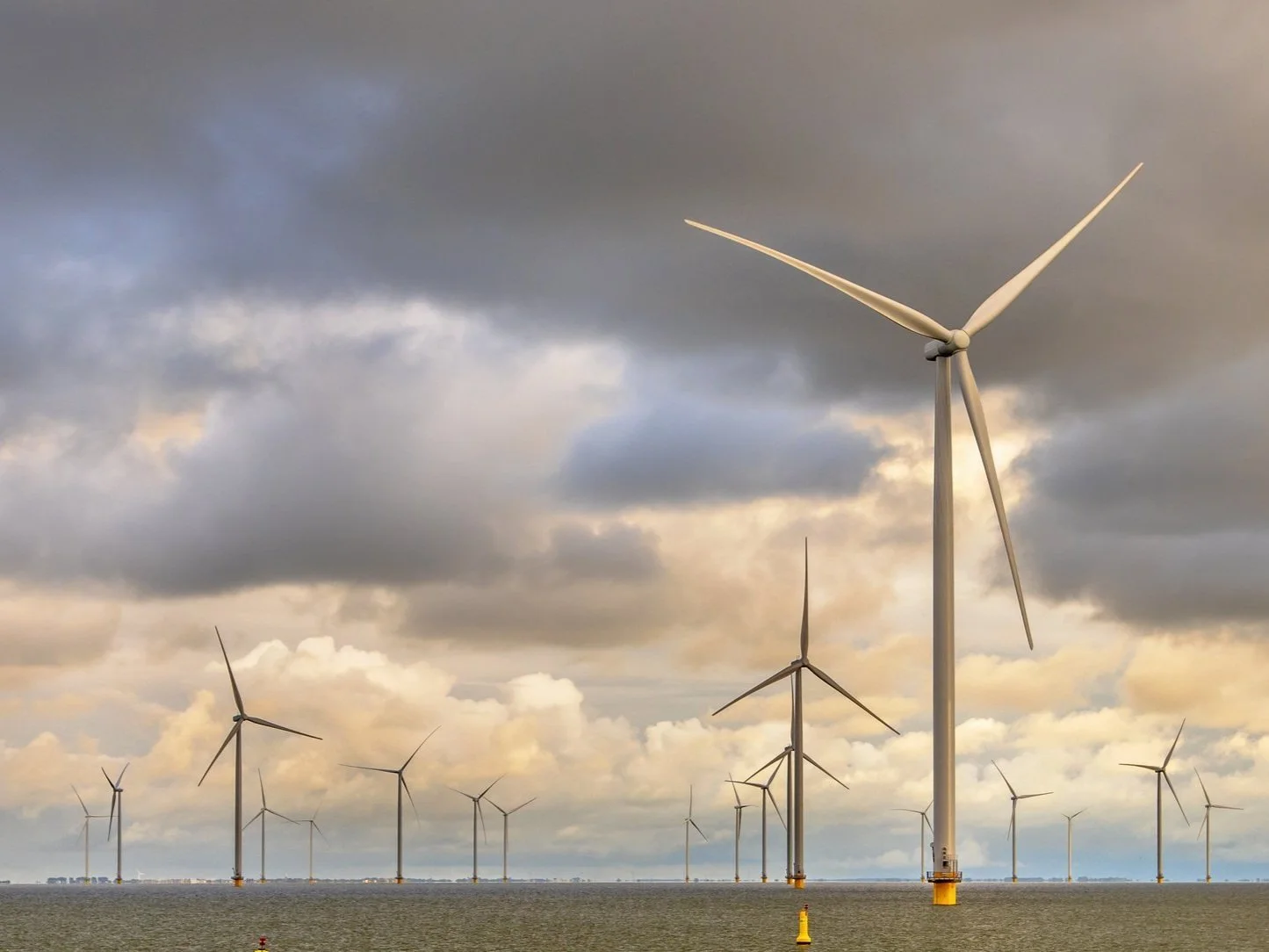
Reasons why some people oppose industrial wind turbine development:
• Damage to pristine ocean views
• Higher electric rates
• Threats to coastal economies -
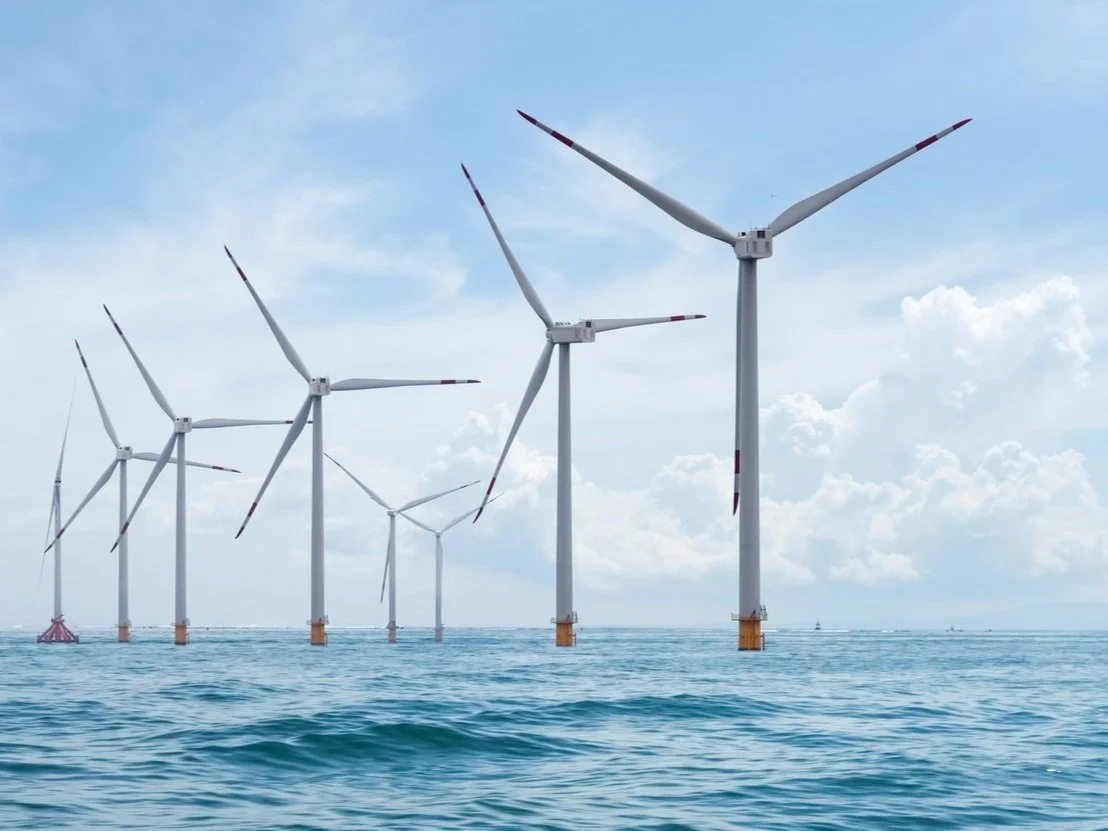
OUR concern is turbines and offshore substations with vast undersea cable systems will:
• Damage Nantucket’s fragile marine ecosystem
• Compromise Nantucket’s National Historic Landmark designation
• Wreak havoc on native birds and fish
• Cause direct harm to the critically endangered North Atlantic Right Whale, potentially destroying one of the whale's last remaining refuges and nursery sites. -

OUR lawsuit aims to halt the process allowing for proper studies and steps to be taken to protect:
• Nantucket‘s pristine environment
• The North Atlantic Right Whale
The North Atlantic Right Whale (NARW) is a federally-listed endangered species whose population has dropped sharply in the last ten years.
Currently, there are just over 300 individuals – that’s it – and female reproductive success has diminished to the point where the species will soon become extinct absent aggressive intervention and protection.
As it happens, the waters south of Nantucket are a refuge for NARWs. In fact, these waters are the only known year-round habitat and winter foraging grounds for NARWs. If the species is going to recover, the waters off Nantucket must be heavily protected and closely monitored.
Unfortunately, this is precisely the area that BOEM has identified for extensive offshore wind development. Specifically, BOEM has issued leases for 9 different wind energy projects, all in this same area. Vineyard Wind 1 is the first to be approved by our federal government. It will be followed by SouthCoast Wind and Park City Wind. The other 5 adjacent projects will come soon after.
Each project will require potentially fatal pile driving hundreds of feet into the ocean floor and thousands of vessel trips per year for construction, operating and maintenance.
In the end, the waters south of Nantucket – the same waters that provide critical refuge for NARW – will be covered with wind turbine power plants covering and area larger than the State of Rhode Island!
